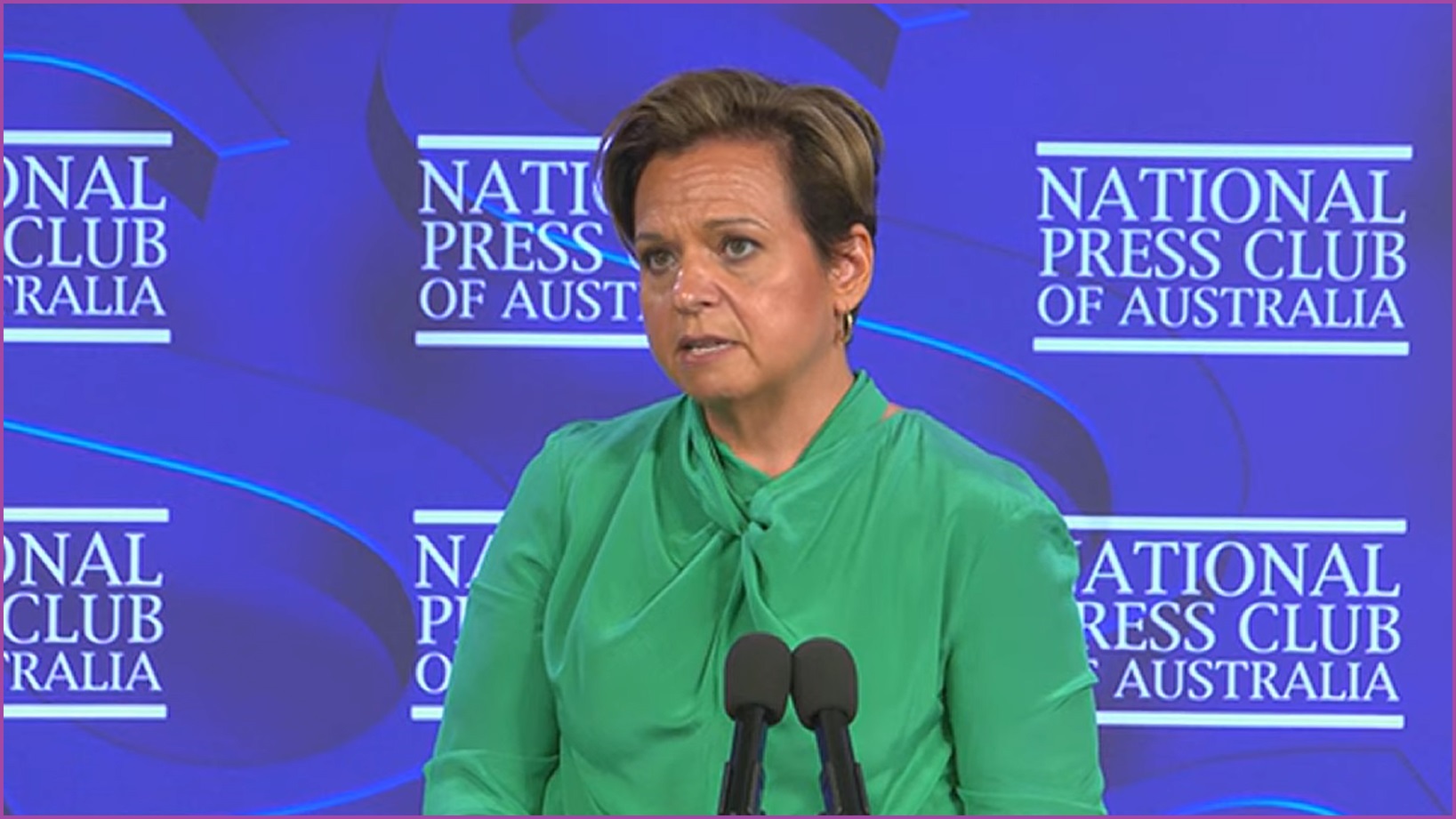New minimum standards will be imposed on tech companies to address the growing threat posed by generative artificial intelligence under a proposed update to federal government regulation.
Communications Minister Michelle Rowland addressed the National Press Club for the first time on Wednesday, outlining new initiatives from the government to improve online safety for Australians.
Rowland revealed the Labor government is planning to make changes to its Basic Online Safety Expectations (BOSE) Determination, which sets out core expectations for the online industry and potential actions to take to meet them, to address new forms of artificial intelligence.
“It’s clear there is more industry can do on harms not explicitly set out in the current expectations,” Rowland said in her Press Club address.
“New harms have emerged and some known harms have intensified. We need to ensure our legislative framework does more than just play catch up, and incentivises platforms to have protections built in.
“Over the past two years, it has become harder to distinguish between AI-generated images and genuine ones. And while this technology has incredible potential as a positive tool, it has also been used to create images designed to humiliate, embarrass or even abuse others.”
Generative AI has come into mainstream prominence this year with the launch of OpenAI’s ChatGPT and a range of other tools, which are already used widely in businesses and the general population. There are now growing concerns over the risks associated with the use of these technologies, and their potential uses in illegal activities.
Basic expectations
The BOSE came into effect in early 2022 under the Online Safety Act and applies to social media services, relevant electronic services and designated internet services – covering virtually all tech companies. Under the Act, the eSafety Commissioner can require a company, or group of companies, to report on how they are meeting some or all of the expectations, with fines applying if they fail to do so.
Since August last year the Commissioner has issued three rounds of reporting notices to 12 companies, covering 27 different services. X (formerly Twitter) became the first company to be fined under this system after it failed to provide adequate information on its efforts to combat child sexual abuse on its platform.
X was fined $610,500 but failed to pay the penalty by the deadline earlier this month.
The proposed changes to the BOSE revolve around the growing use of generative AI and the risks and harms associated with it, requiring any company using the technology to “proactively minimise” the extent it can be used to produce unlawful and harmful material.
Under the draft determination, a provider must “take reasonable steps regarding generative artificial intelligence capabilities”. This includes “reasonable steps” to consider end-user safety and to incorporate safety measures in the design, implementation and maintenance of AI capabilities, and to proactively minimise the extent to which generative AI capabilities may be used to produce material or facilitate activity that is unlawful or harmful.
The determination also includes potential steps tech firms can take to meet this expectation, including conducting safety risk assessments and safety reviews, providing educational or explanatory tools to promote understanding of the technology and its risks, and efforts to ensure training materials and models don’t contain unlawful or harmful material.
The government is now consulting on these draft changes to the BOSE, with submissions due by mid-February.
The proposed expectations also include that industry must consider the best interests of children in the design and operation of their services, and that appropriate age assurance mechanisms and technologies are in place to prevent children from accessing inappropriate material online.
On Wednesday, Rowland announced that former Australian Competition and Consumer Commission deputy chair Delia Rickard has been appointed to lead a statutory review of the Online Safety Act, which has been brought forward by a year.










